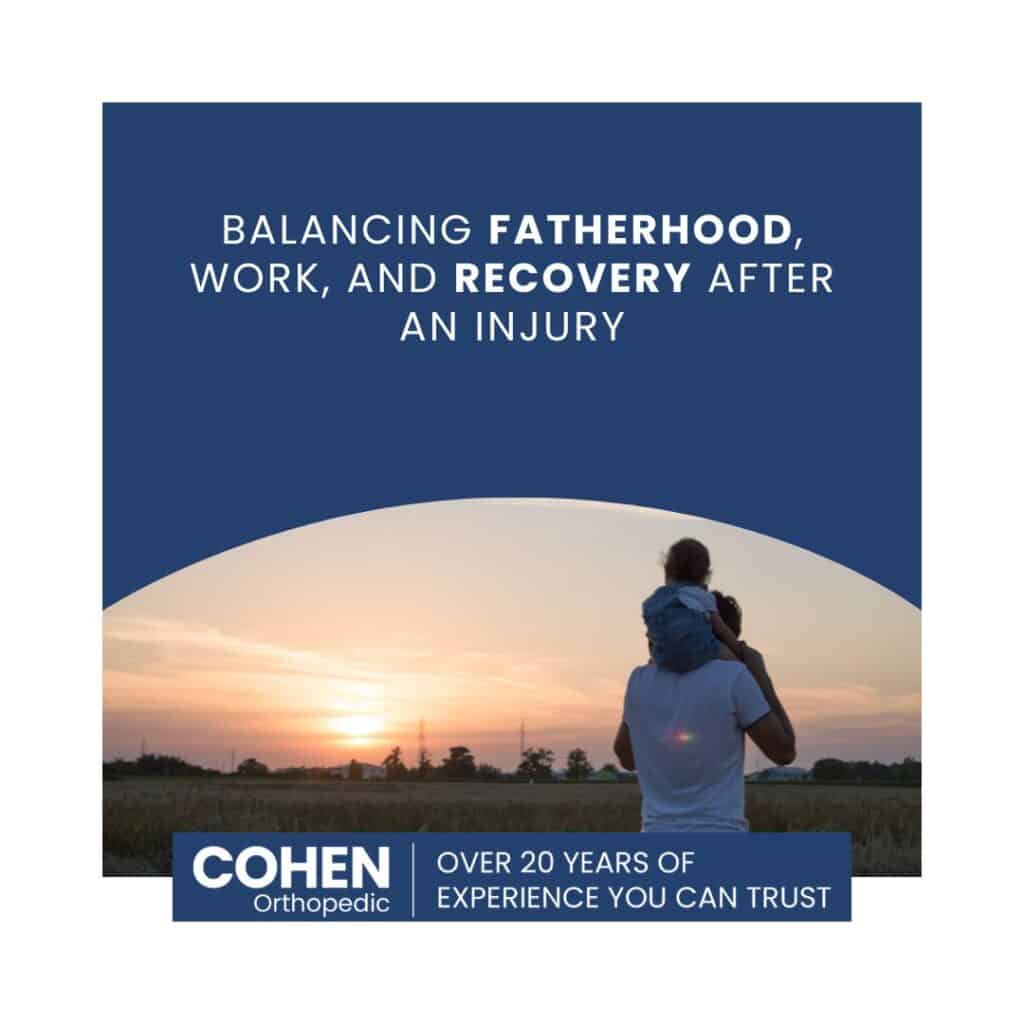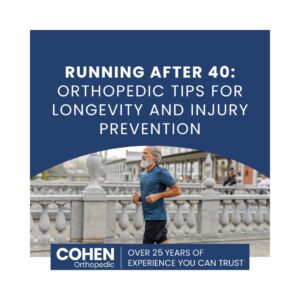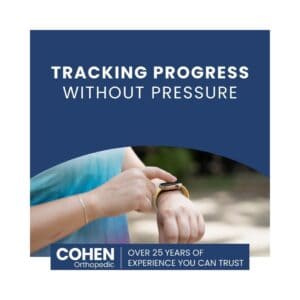Balancing Fatherhood, Work, and Recovery After an Injury
Real Strength Is Knowing When to Slow Down

Fatherhood comes with its own set of challenges—late nights, early mornings, endless energy demands, and the emotional weight of being a dependable figure. Add work responsibilities and the physical and emotional toll of recovering from an injury, and you’ve got a balancing act that can feel nearly impossible.
Whether you’re healing from a workplace injury, sports-related trauma, or surgery, recovery requires time and care. But for fathers—especially those in demanding jobs—slowing down can feel like letting others down. The truth is, prioritizing your recovery is one of the most important things you can do for your family, your job, and your future health.
The Weight of Responsibility
Many men take pride in their ability to provide and protect. When injury strikes, it can shake your sense of identity. You might wonder:
- “How can I keep up with my kids if I can’t lift them?”
- “What if I can’t return to work as quickly as expected?”
- “Am I letting my family down by needing rest?”
These feelings are valid—but they don’t reflect failure. In fact, the strength to recover properly shows foresight, patience, and real leadership.
3-Way Balance: Fatherhood, Work, and Healing
1. Communicate Openly
Let your partner, children, employer, and even friends know what you’re going through. You don’t have to go into graphic detail—just be honest that you’re healing and may need some adjustments. Kids especially are resilient and understanding when things are explained to them clearly.
Tip: Frame recovery as a family mission: “Dad’s body is healing so I can be strong for more adventures soon.”
2. Set Boundaries and Pace Yourself
Resist the urge to “tough it out.” Overexertion during recovery can lead to setbacks and longer healing times. Set realistic goals and pace your return to normal activities.
- Use assistive devices or tools if recommended
- Ask for modified duties at work
- Delegate household tasks when needed
3. Stay Involved in Meaningful Ways
You might not be able to throw your kids in the air or run around the yard just yet—but you can read with them, supervise playtime, help with homework, or even cook dinner while seated.
Staying emotionally present—even if physically limited—matters more than you may realize.
Supporting Mental and Physical Recovery
Injury doesn’t just take a toll on your body—it affects your mental health too. Many fathers experience frustration, depression, or feelings of inadequacy during recovery.
- Stay active within your limits – Even gentle walking can boost mood and circulation.
- Connect with other dads – Peer support reminds you you’re not alone.
- Ask for professional help – Physical therapy, occupational therapy, and mental health counseling can all be game-changers.
- Celebrate small wins – Every milestone matters: less pain, more mobility, or even just a better night’s sleep.
Perspective: This Is Temporary, But the Benefits Are Long-Term
Taking recovery seriously means fewer long-term complications, better physical outcomes, and more energy to invest in your family and work life down the road. Healing now ensures that you can be the dad, coworker, and man you want to be—not just today, but for years to come.
In Conclusion
Balancing fatherhood, work, and recovery after an injury isn’t easy—but it’s doable with the right mindset and support. You’re not stepping away from responsibility—you’re investing in your ability to return stronger. This Men’s Health Awareness Month, let’s redefine strength to include rest, resilience, and the courage to ask for help when it’s needed.
You’re not just recovering for you—you’re healing for the people who count on you most.










